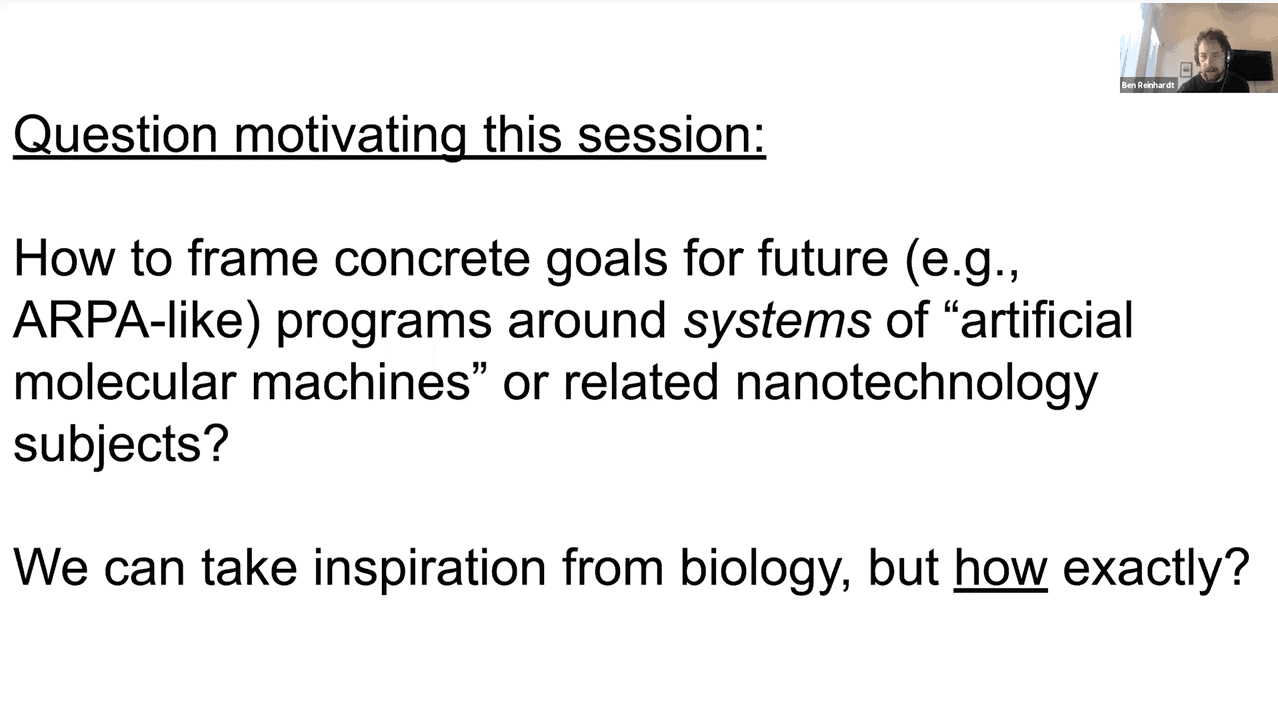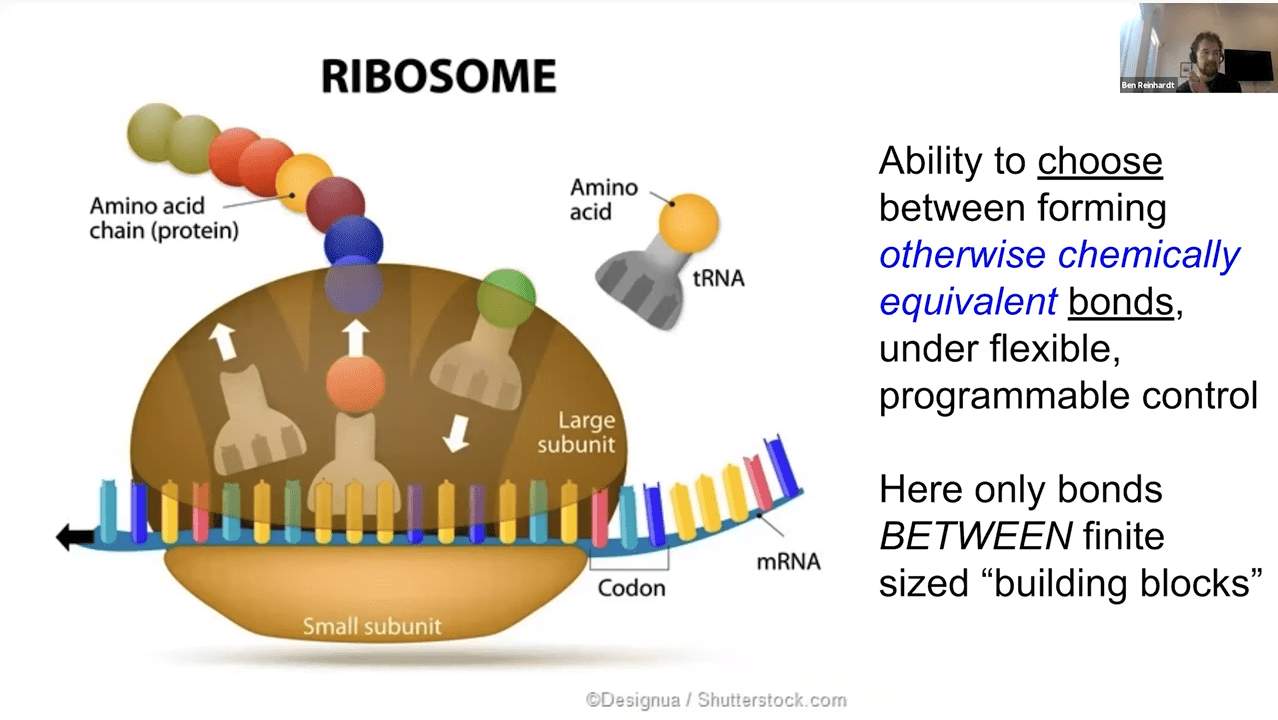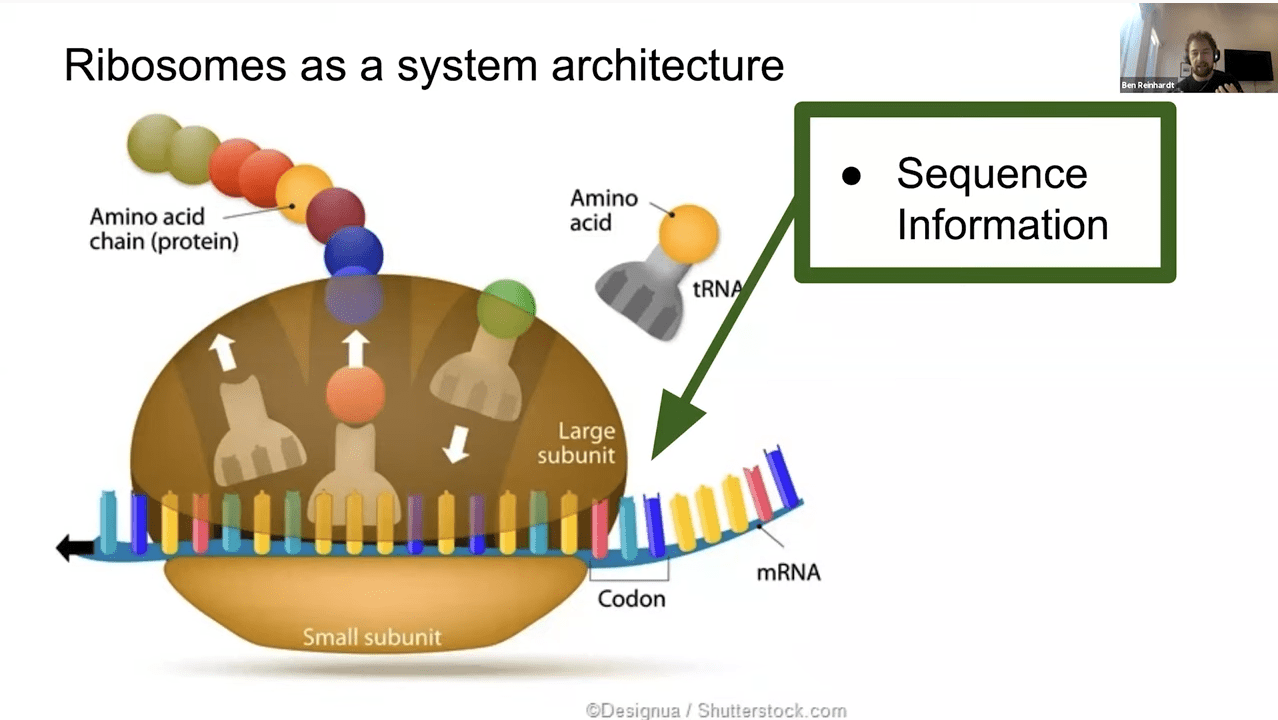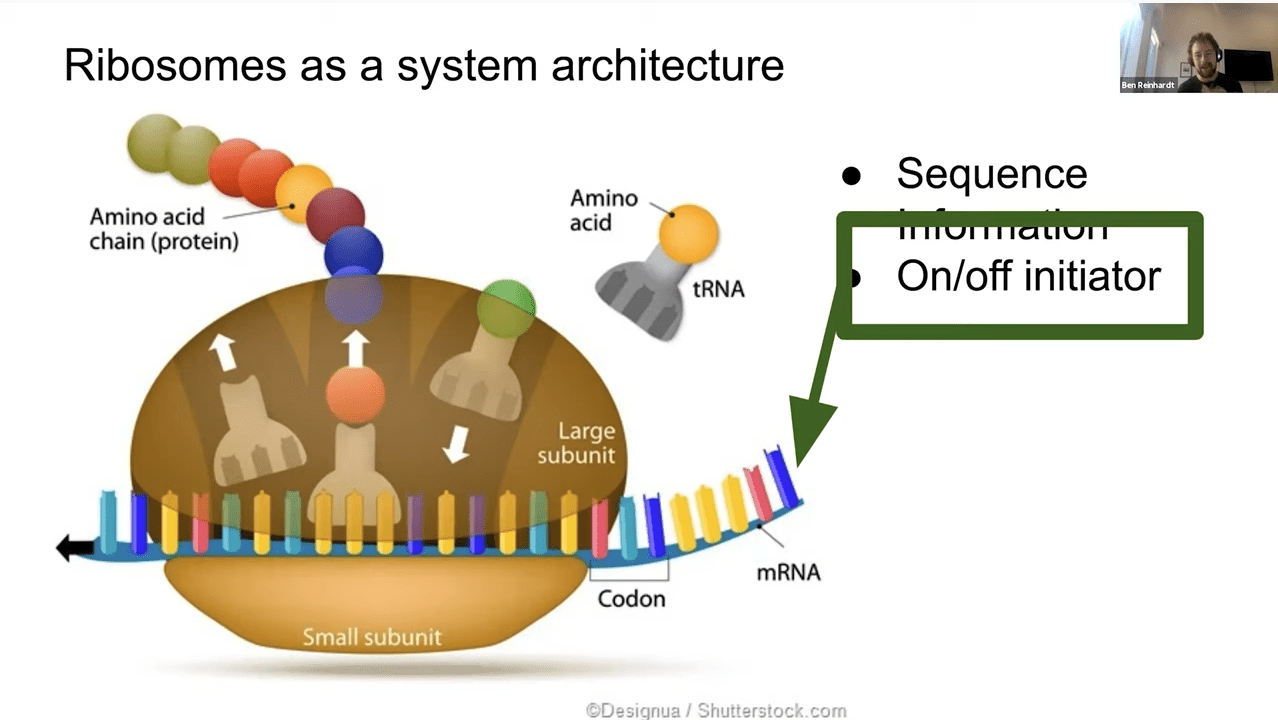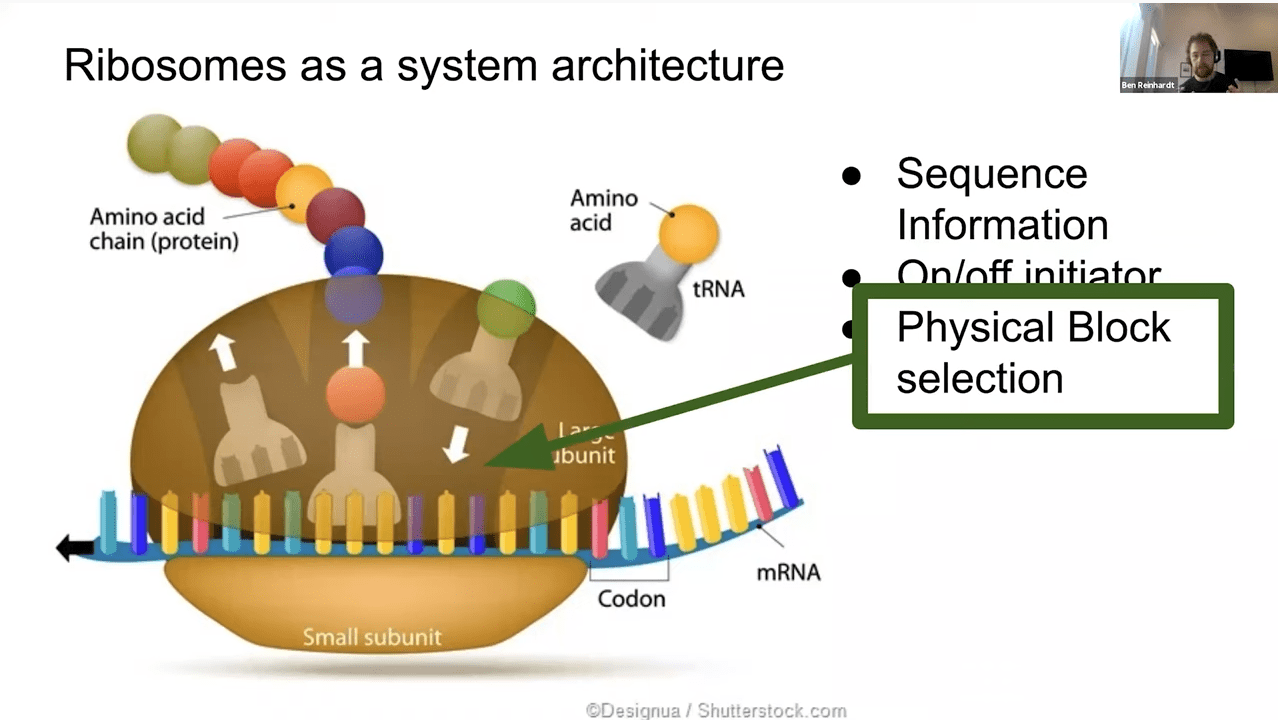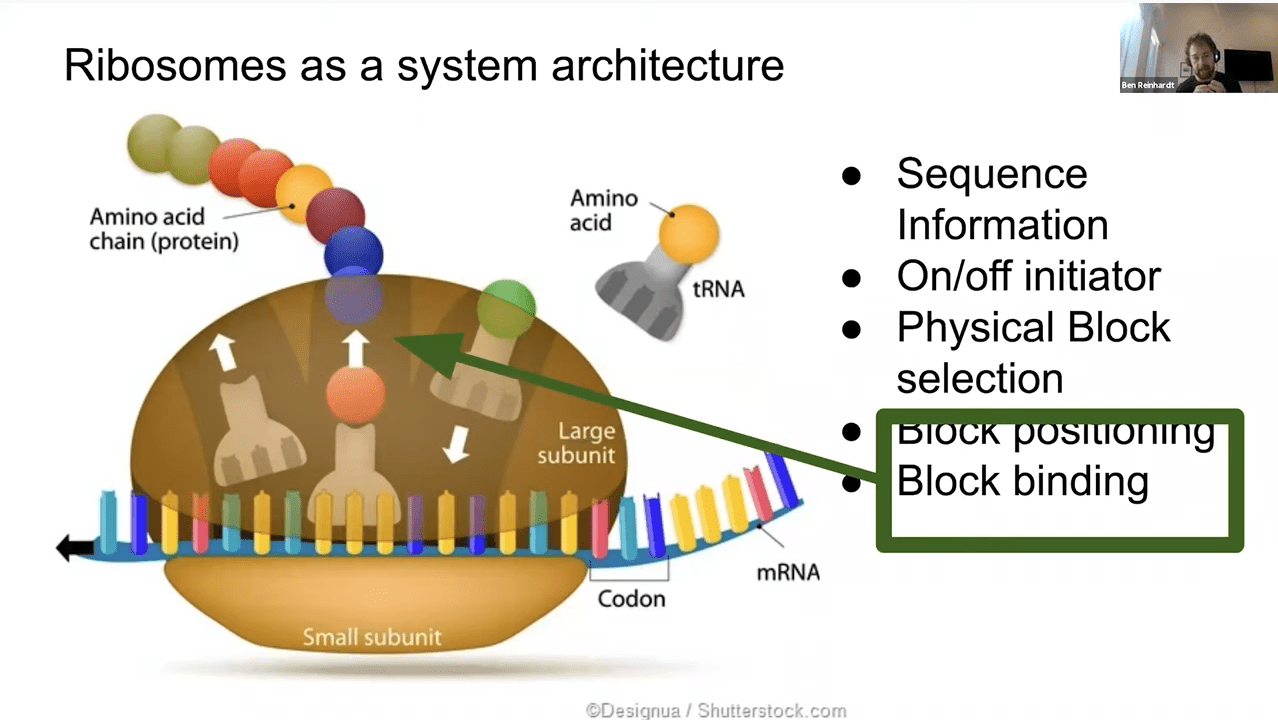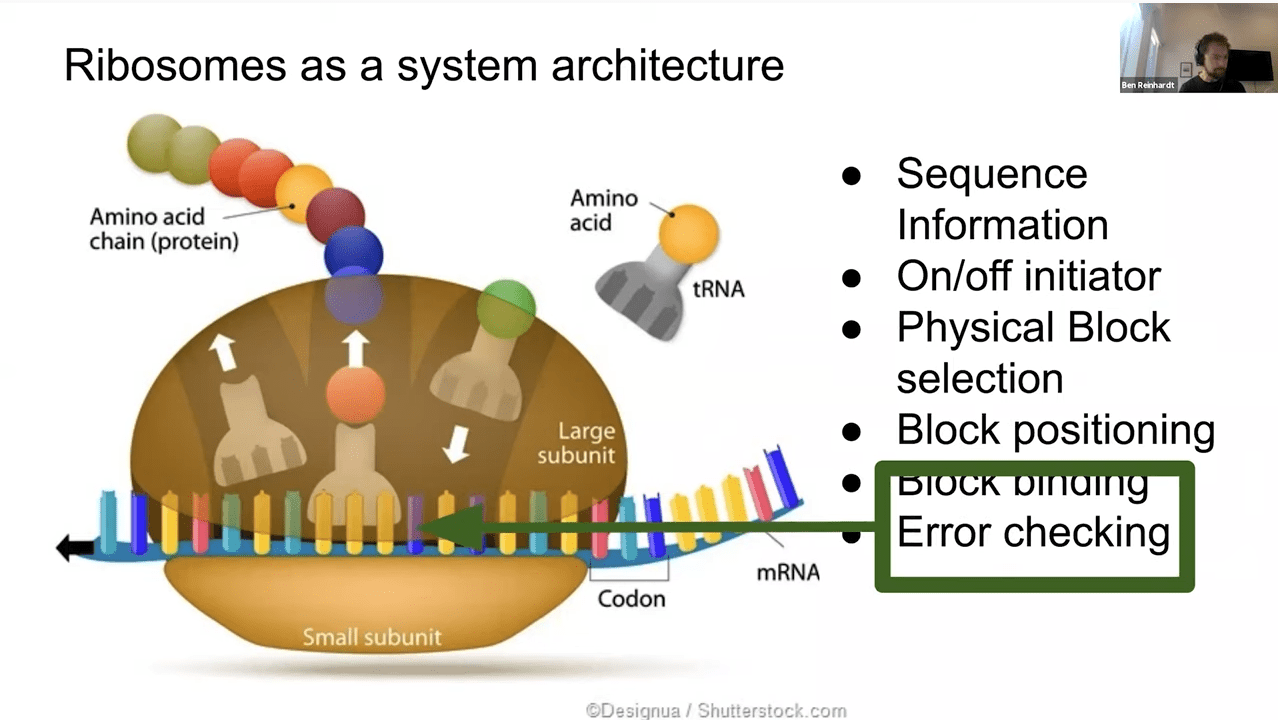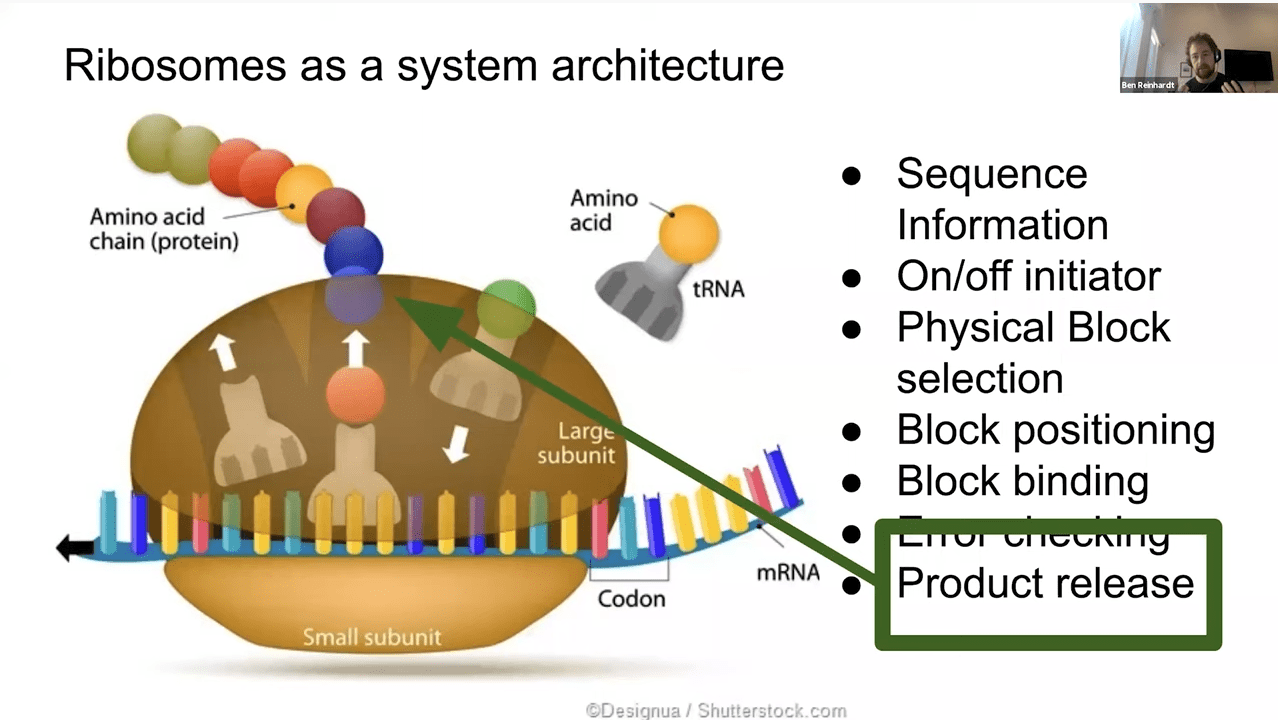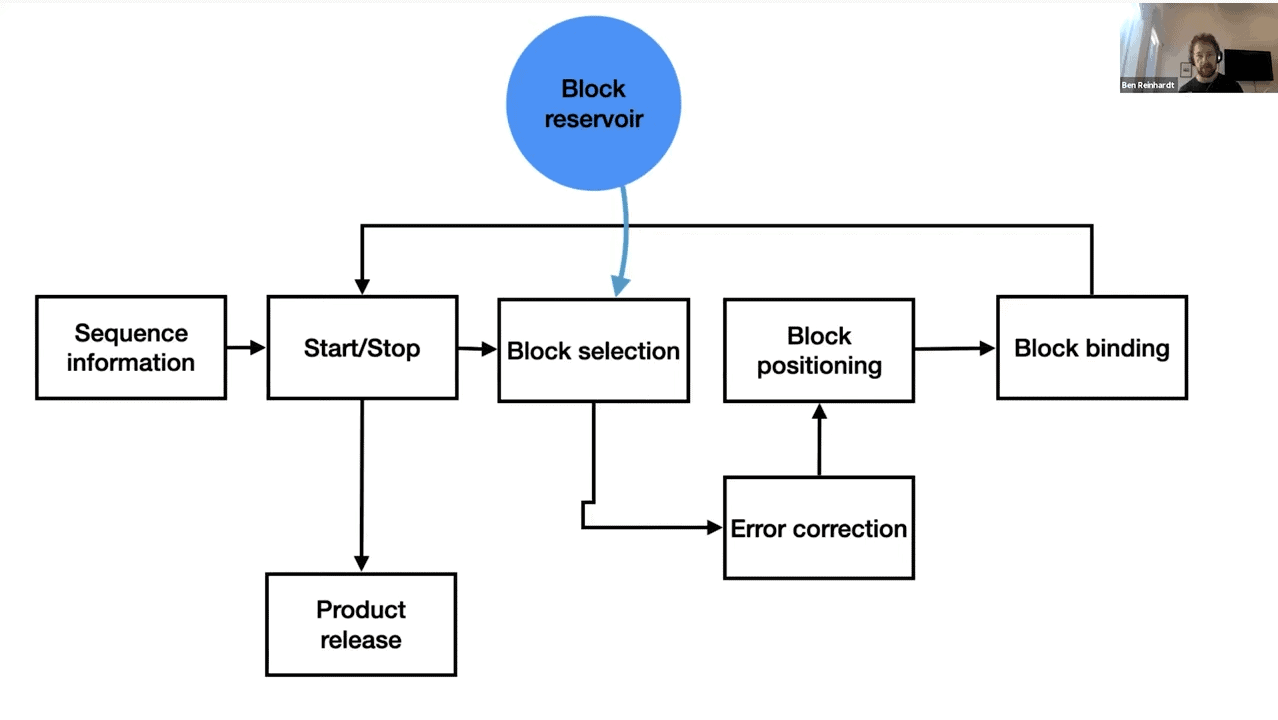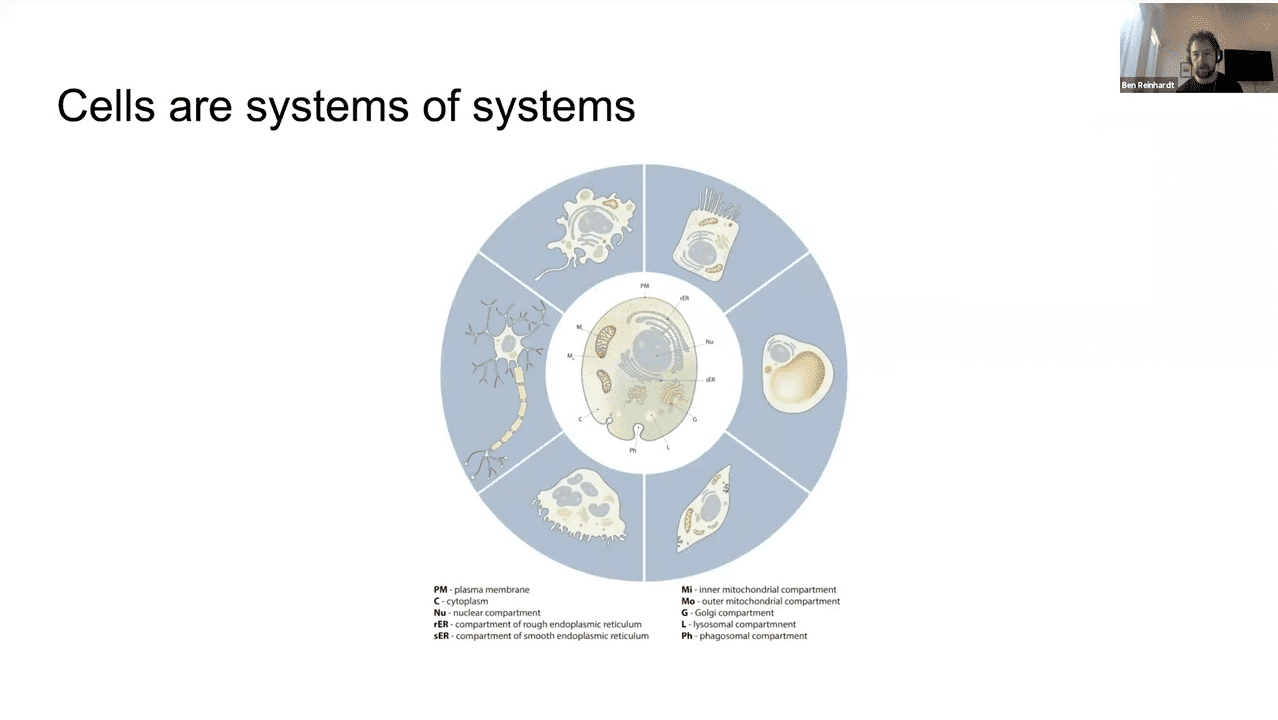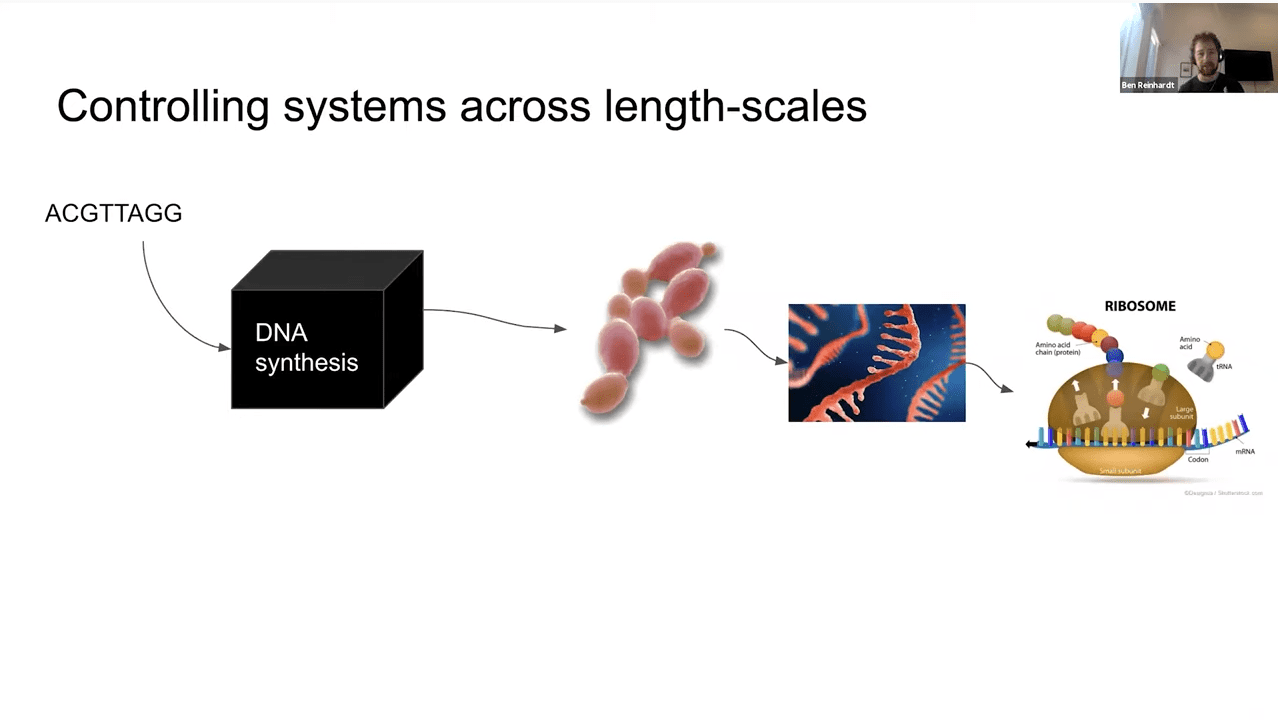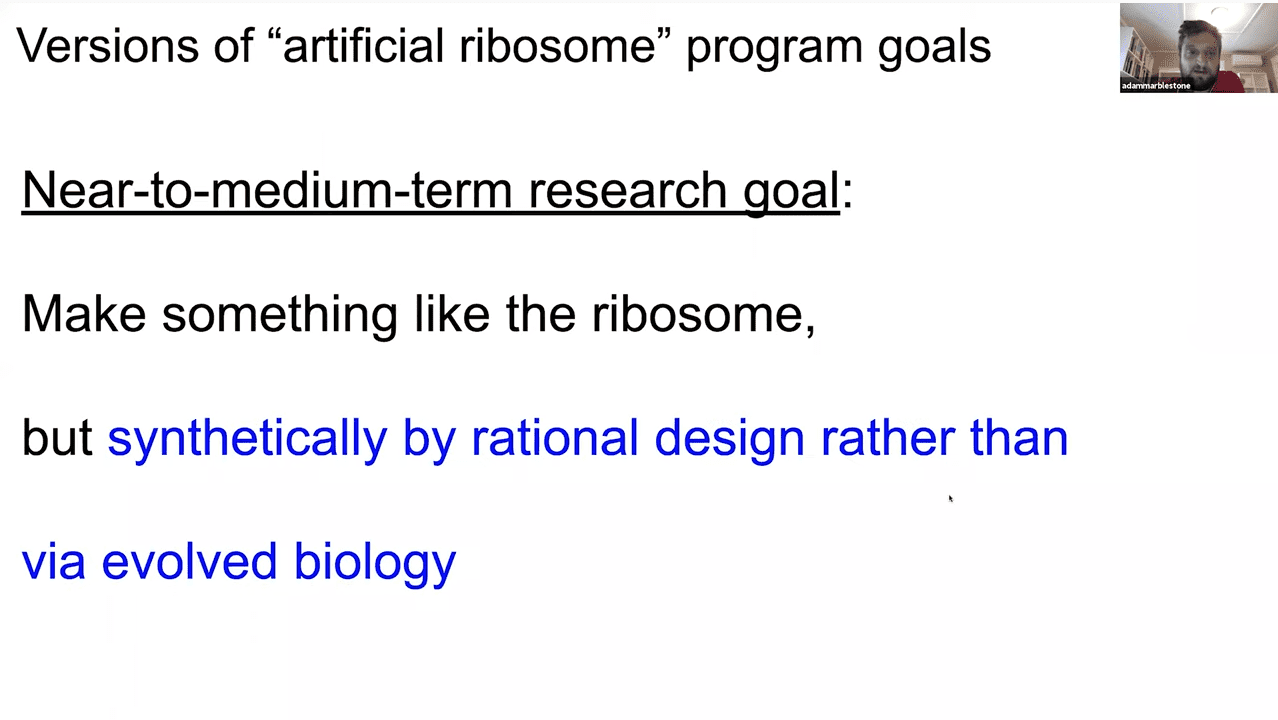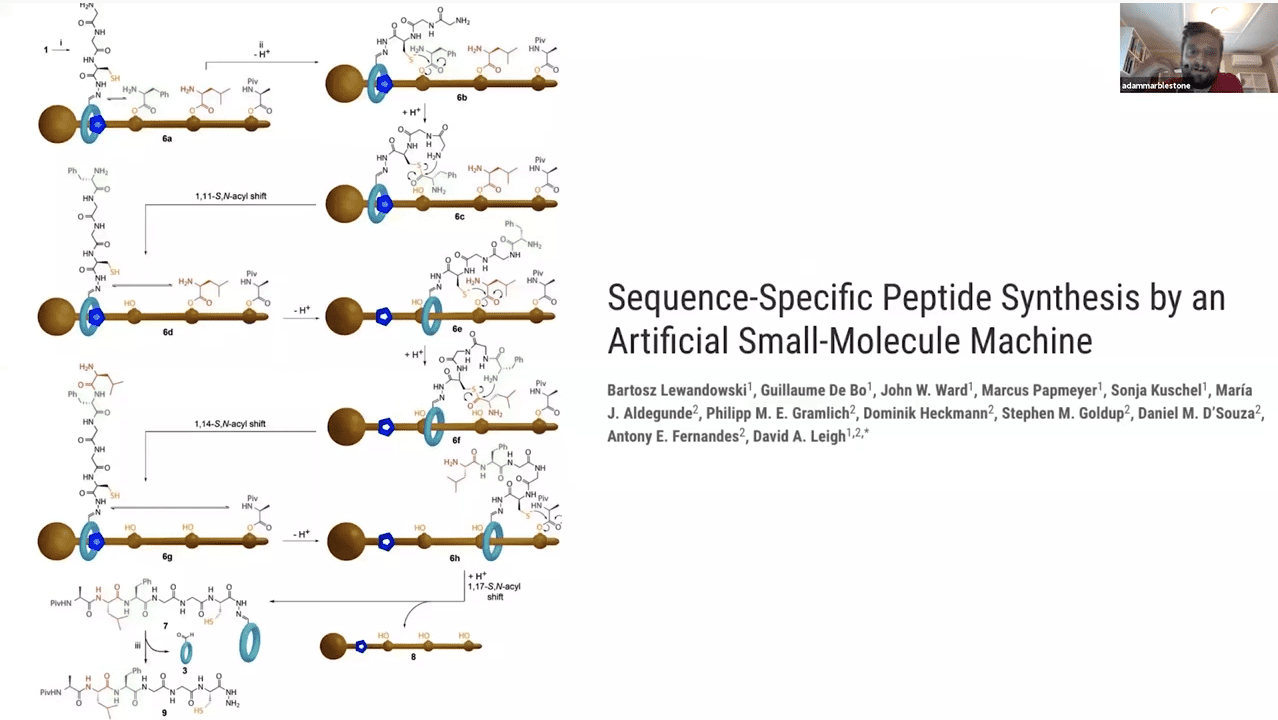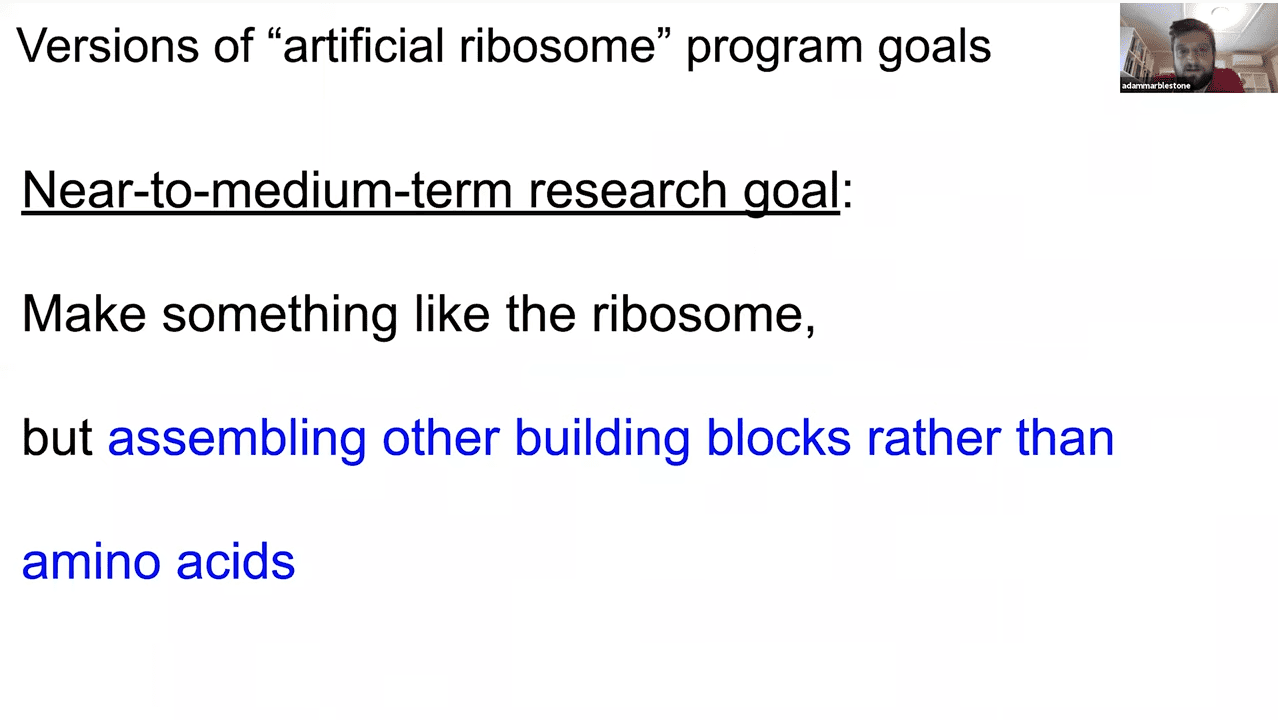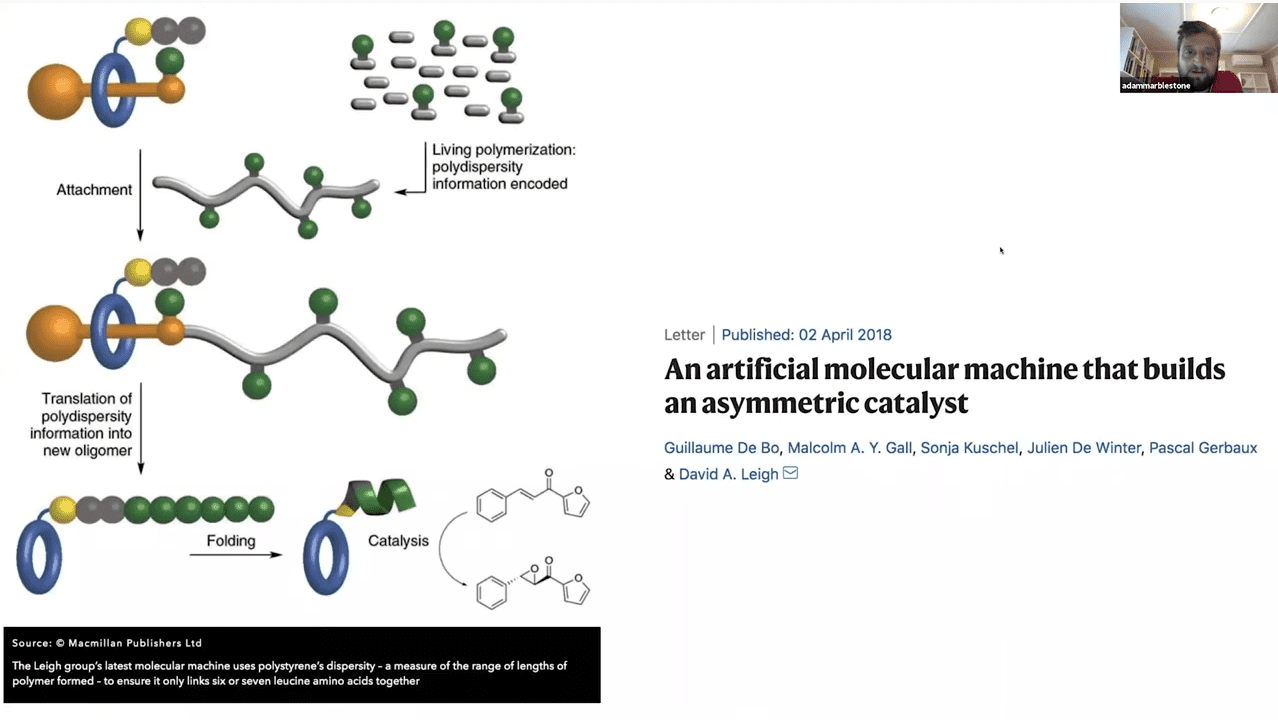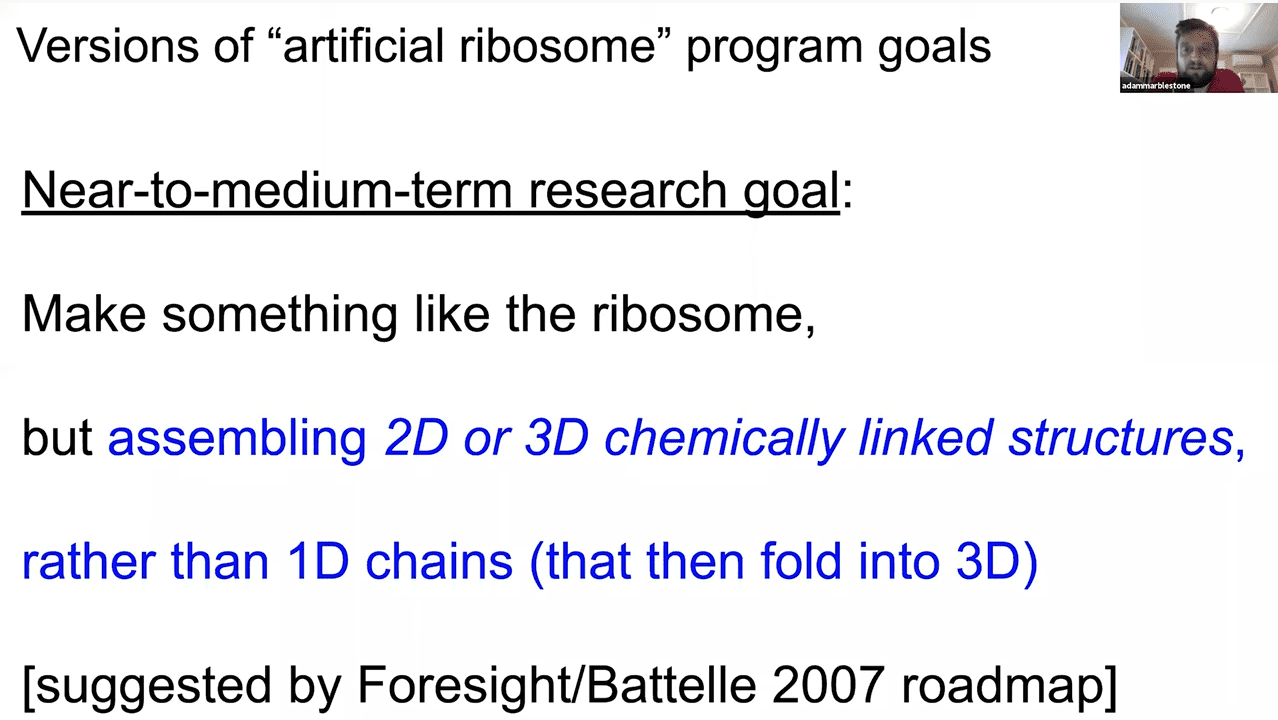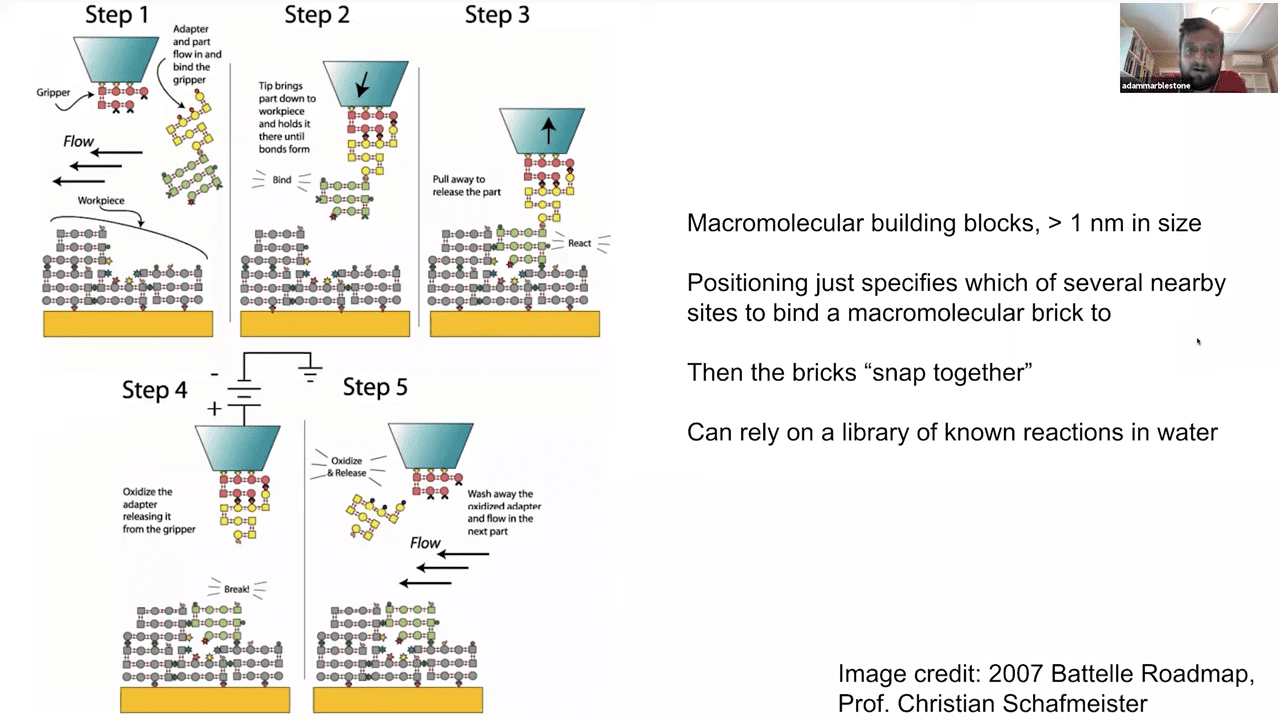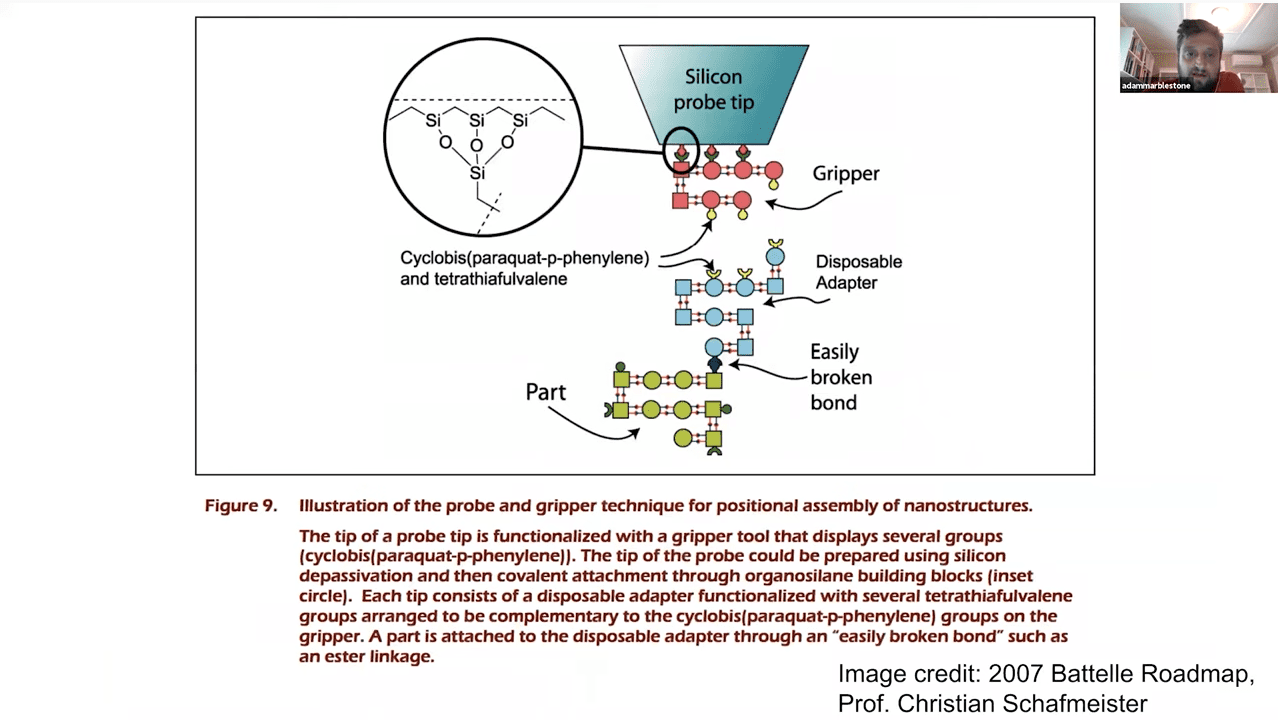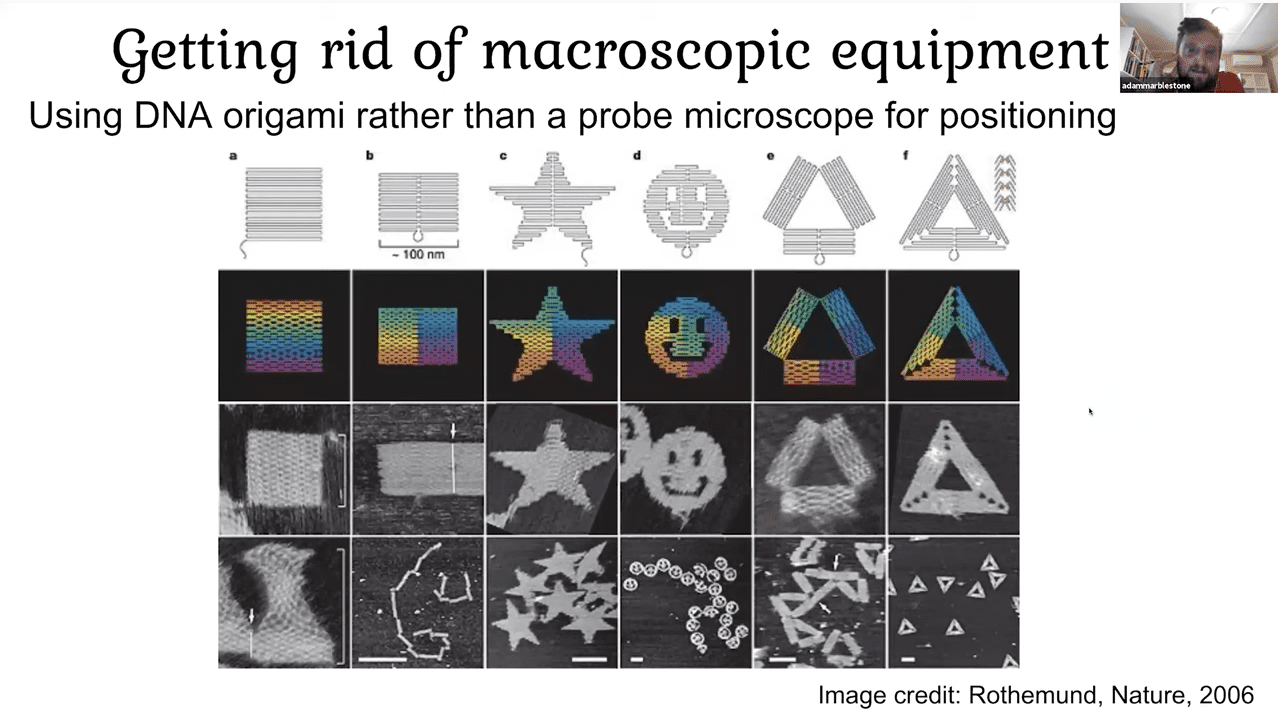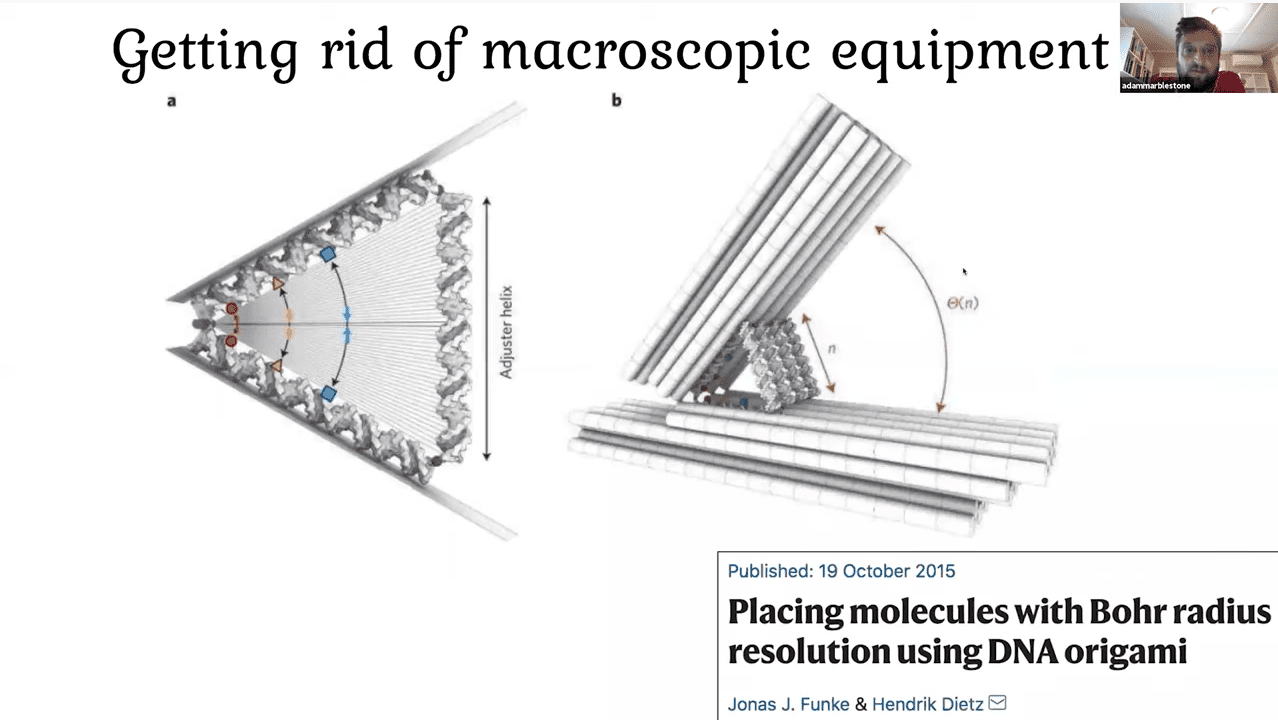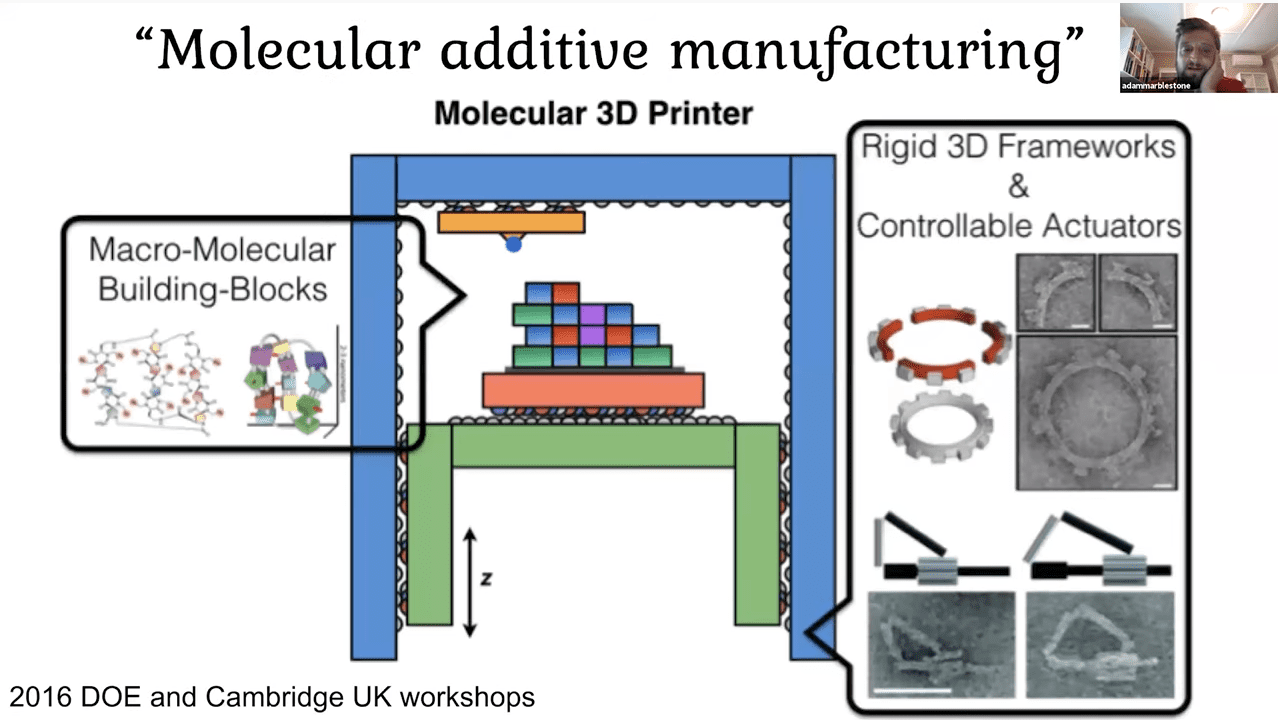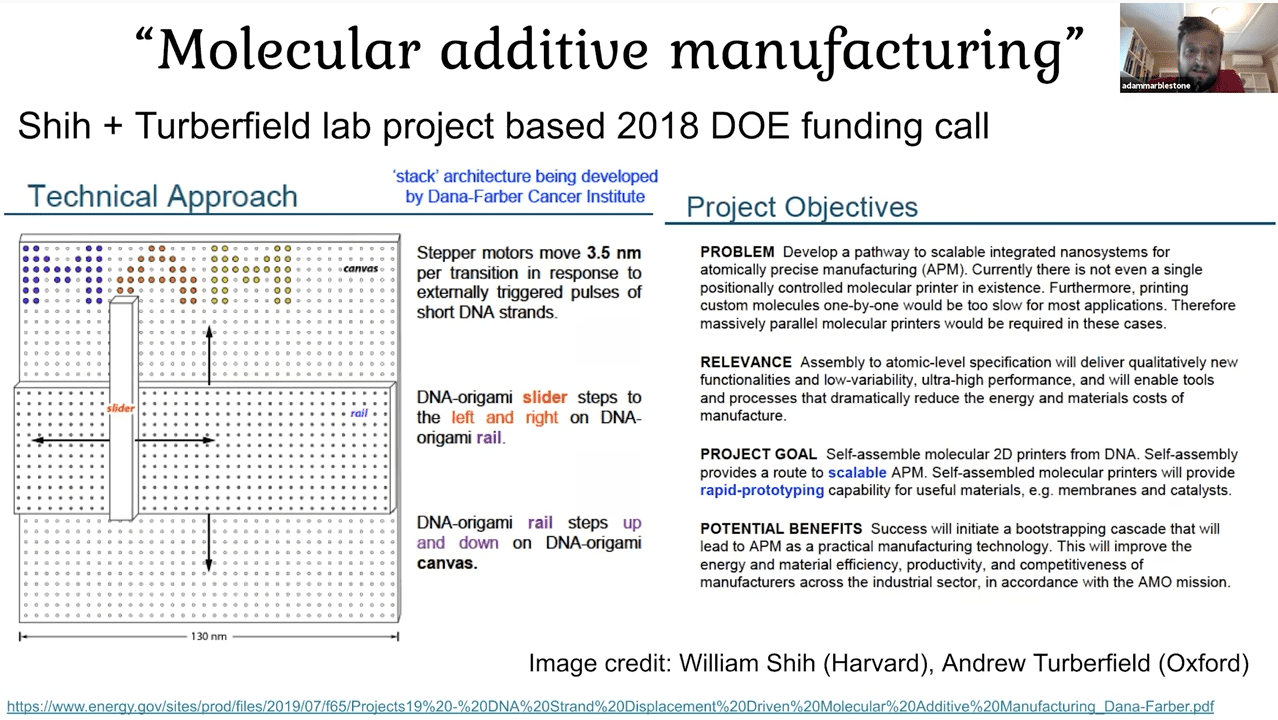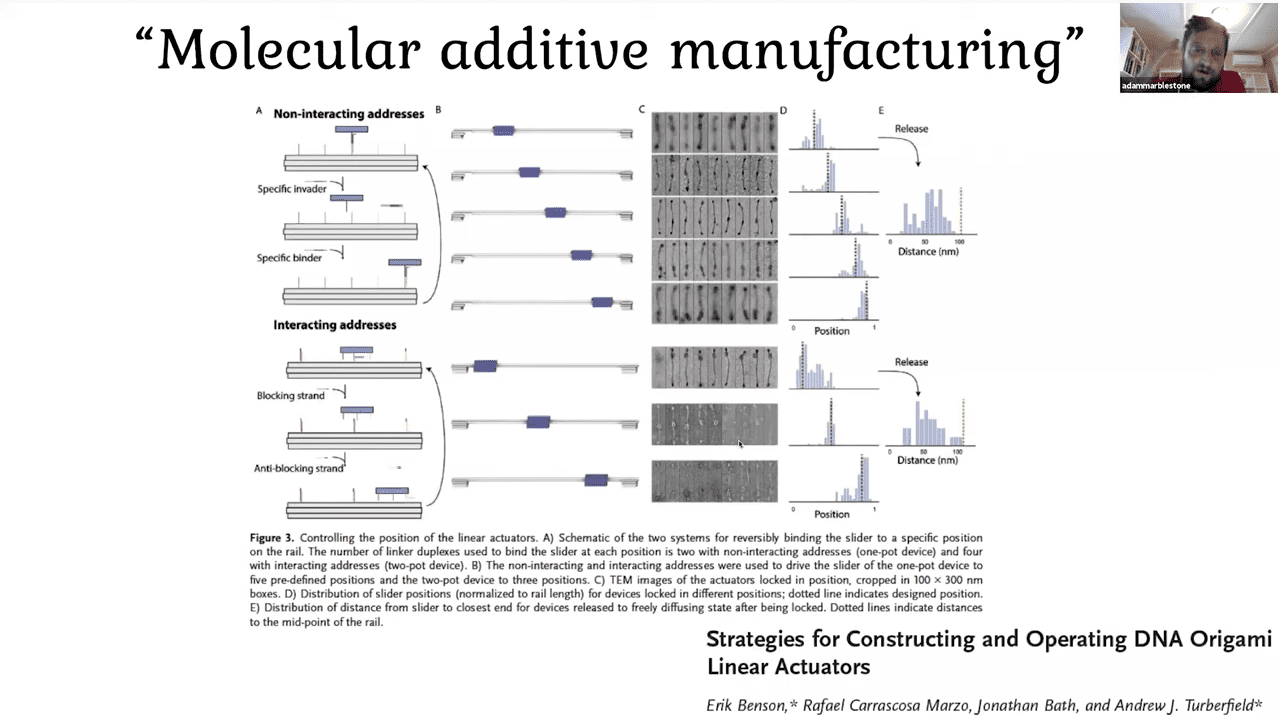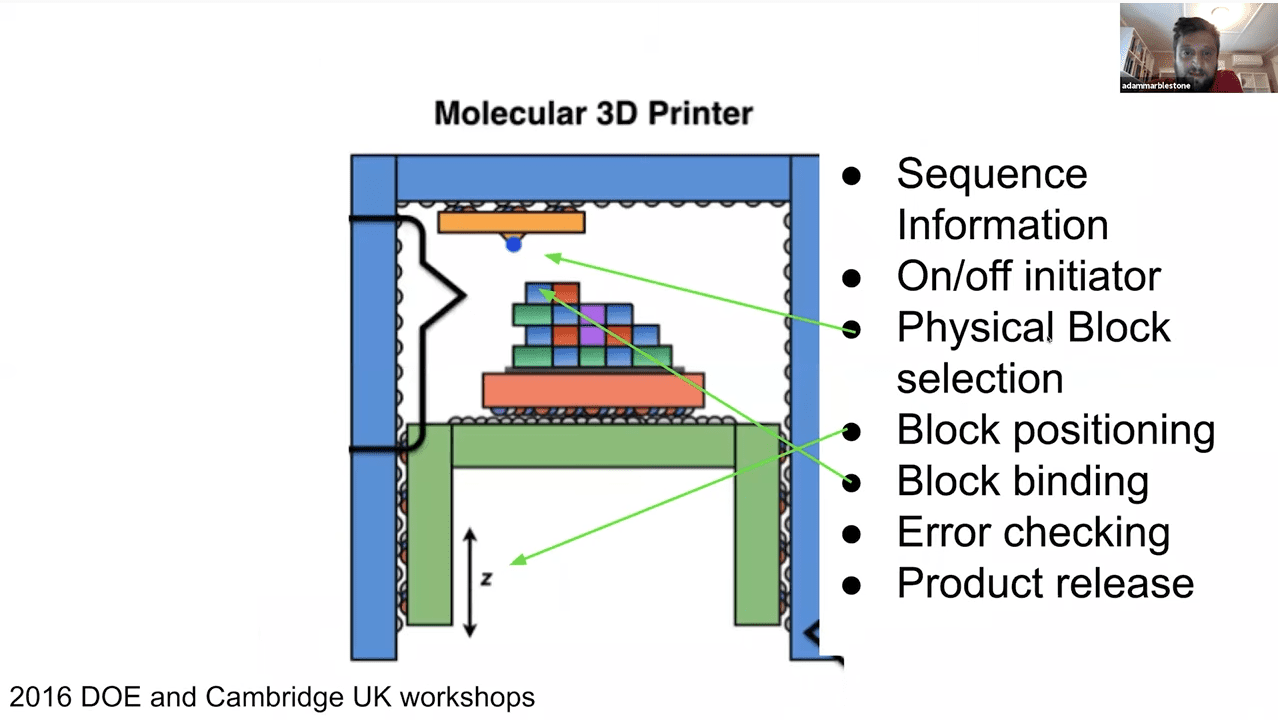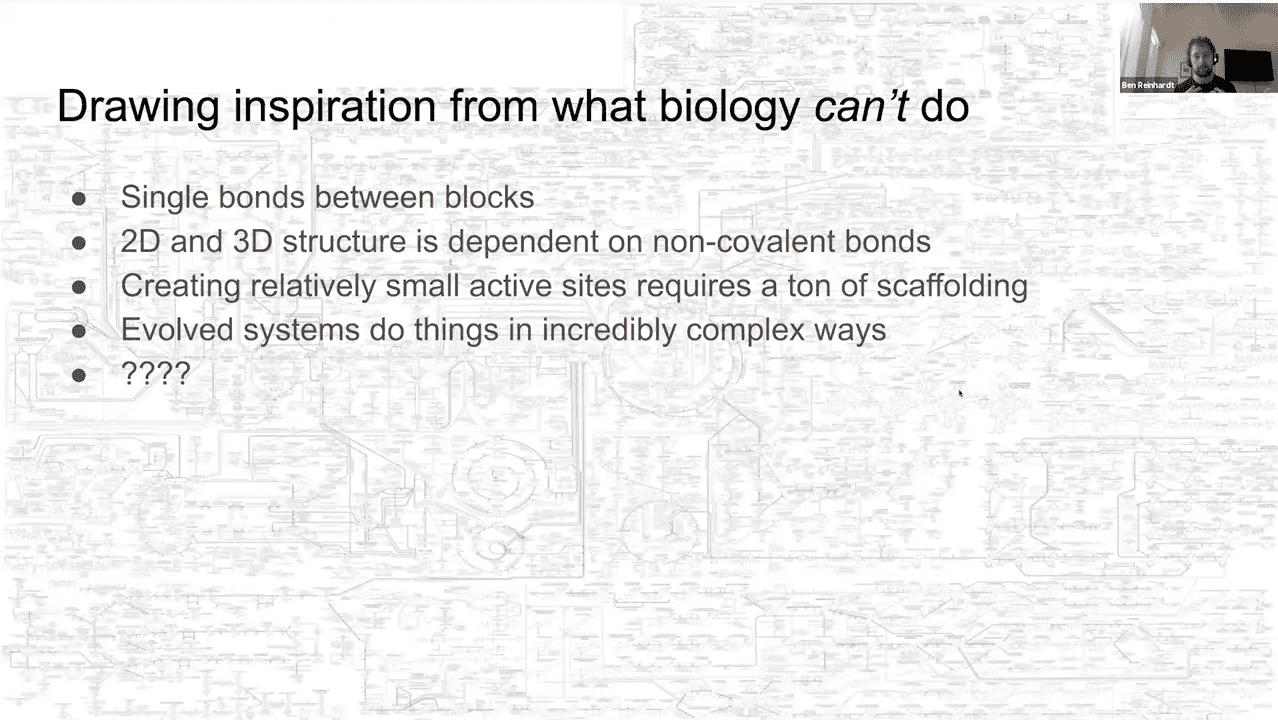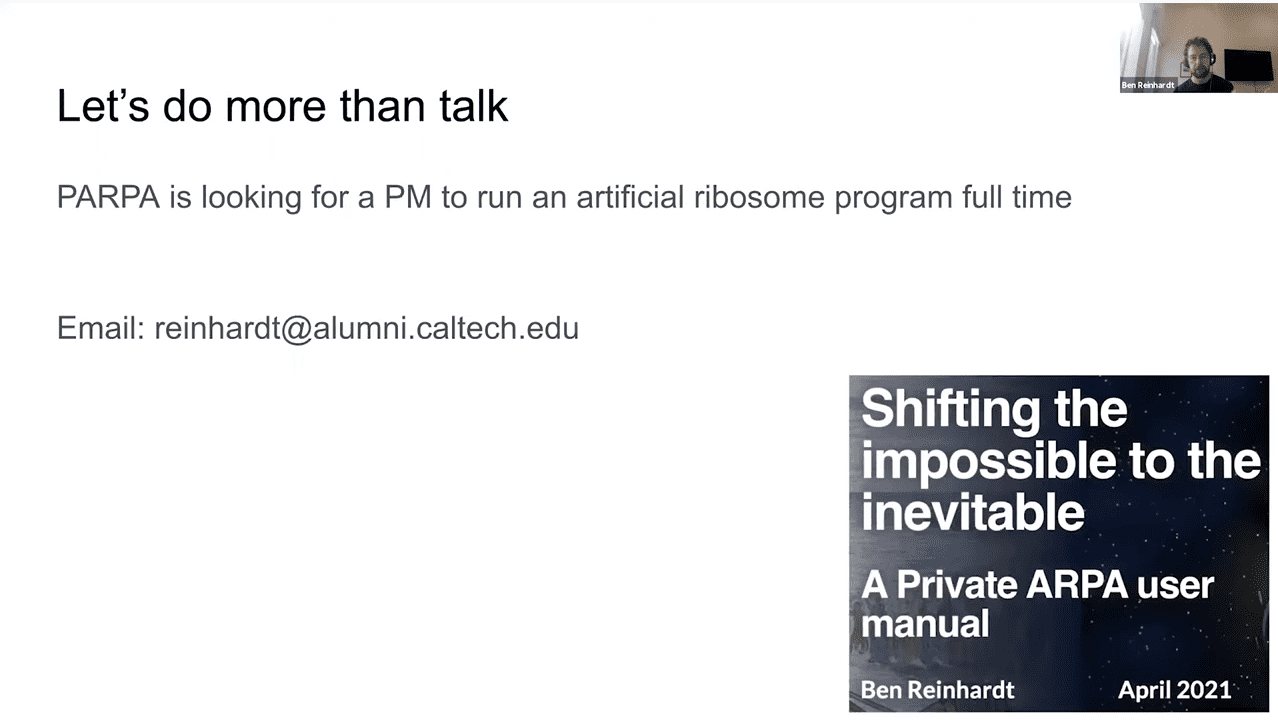Presenters

Adam Marblestone
I am working to roadmap and launch science and technology moonshot projects that call for novel organizational and funding models. I am a Schmidt Futures Innovation Fellow and affiliated with the Federation of American Scientists (FAS). Previously, I was a research scientist at Google DeepMind studying connections between AI and neuroscience, Chief Strategy Officer…

Benjamin Reinhardt
I’m working on how to enable more amazing sci-fi things to become reality. I also host the Idea Machines Podcast where I have long form conversations with experts in different innovation systems. In the past I was an EIR at Entrepreneur First in Singapore where I helped ambitious people build…
Presentation: Molecular 3D printer Parts and Systems Brainstorm
- How to frame concrete goals for future programs around systems of molecular machines? Current work needs to be part of a larger coherent vision.
- The ribosome is the place to start thinking about integrated molecular machine systems. It is an assembly of various mechanisms that work together to produce complex nano-scale products. In practice, the ribosome uses RNA to assemble proteins via tRNA/amino acid modules. Building an artificial ribosome represents a strategic goal for molecular machines.
- The process components involved are:
- sequence information, determine the input
- on/off inhibitor, being able to turn on and off
- physical block selection, grabbing the correct unit for assembly
- block positioning, positioning the unit for assembly
- block binding, assembling the unit
- error checking, checking that the unit is correct
- product release, disposing of the residual waste from assembly
- Ribosomes have a lot of surrounding infrastructure – if we want to build an artificial ribosome, we also need to consider the other systems surrounding them.
- How do we get sequence information to the artificial ribosome? The current process is convoluted, how can we design it simpler?
- The general goal is to make a biological molecular machine but with rational design rather than evolved biology.
- The closest work being done is by David Leigh on artificial peptide synthesis.
- A more general version of building sequence-specific polymers
- Is it possible to skip the folding step and simply assemble the structure in 2d or 3d from the start using a molecular 3d printer
- A 2d example of macromolecular building blocks which snap together, positioned by an atomically precise printer head
- Spiroligomer molecular lego bricks
- A closer illustration of the concept
- Having a giant scanning electron microcope assembling these things is tedious, it would be better to have small assemblers.
- DNA origami is an option
- How precise can it be? Nobody has done it yet, but in principle these origami structures should be able to do the job.
- Molecular additive manufacturing is part of a larger system
- Examples of molecular additive manufacturing
- A molecular 3d printer has the same process requirements as an artificial ribosome
- One question is “what is the useful thing we can make right now” – but another way of looking at it is to have a unified goal which multiple projects are working toward. There is no tangible measure of success right now. We should ask what biology cannot do, then produce machines to fill that void. Constraints of biology are single bonds between blocks, noncovalent interactions, and a requirement for large scaffolding for small active sites.
- Thinking about potential outputs for an artificial ribosome.
- Artificial polystyrenes cannot be produced by biology or normal chemistry
- Enzymes that do not break down, smaller versions of enzymes
- Catalysts for biological steps which normally require many steps
